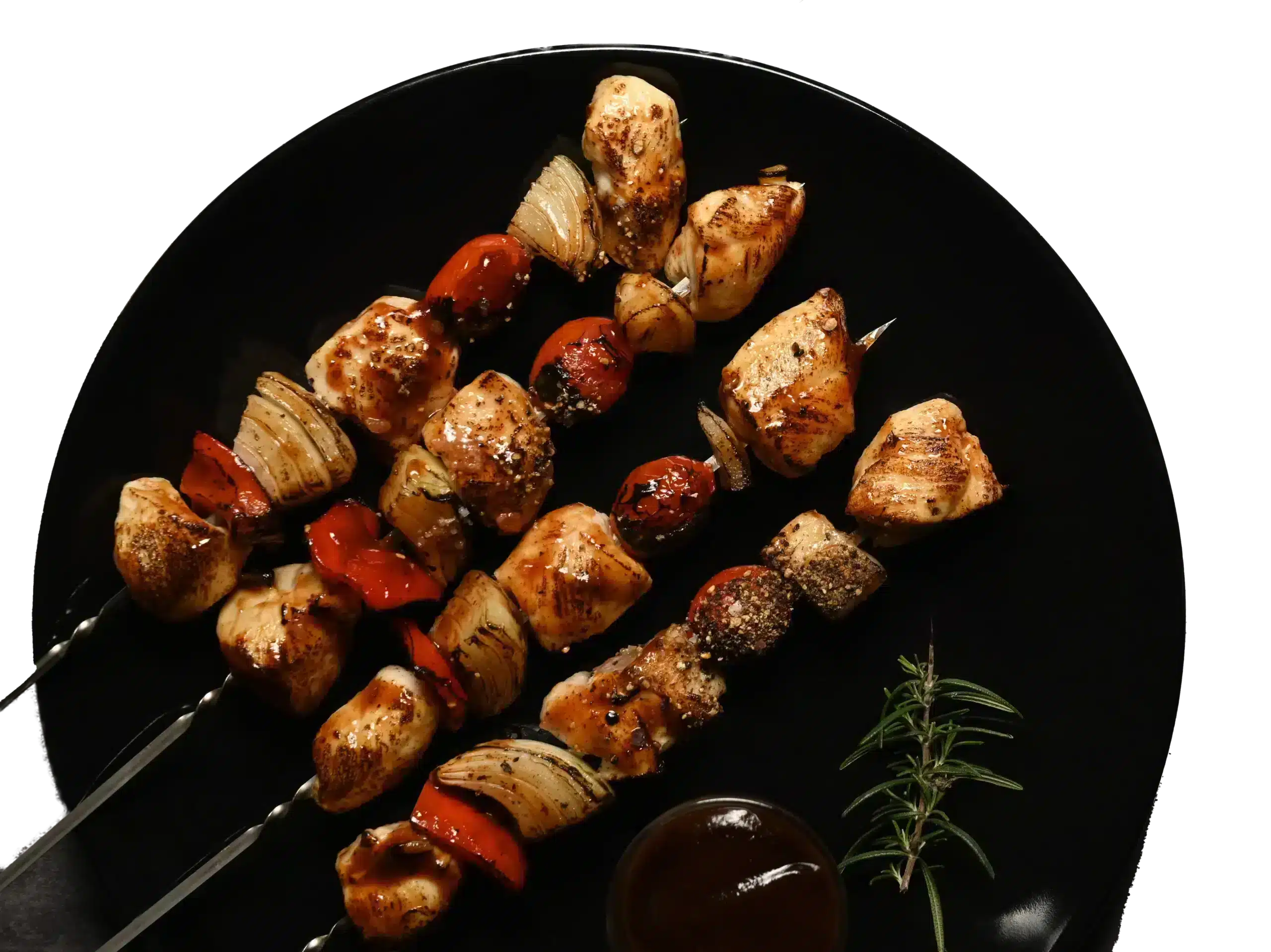
Are you struggling to get your picky eaters to broaden their culinary horizons? Look no further than your own kitchen! Cooking with kids is not only a fun and engaging activity, but it can also help transform picky eaters into junior chefs with adventurous palates. By involving children in the cooking process, you can encourage them to try new foods and develop valuable culinary skills that will benefit them for a lifetime.
In this article, we’ll explore the various ways that cooking can expand kids’ palates and contribute to their overall well-being. From inspiring healthy eating habits to nurturing independence and responsibility, cooking is a valuable tool for parents looking to transform their picky eaters into confident and adventurous eaters.
If you want to expand your child’s palate and encourage them to try new foods, cooking with them is the way to go. Cooking for kids is an essential way to introduce new foods, encourage creativity, and teach them essential culinary skills that will support them throughout their lives. It is a powerful tool that can help build confidence, independence, and responsibility in children.
According to research, cooking with kids leads to healthier eating habits, and you are more likely to have kids who enjoy their fruits and vegetables if they are involved in the cooking process. In addition, cooking with kids allows for quality family time and bonding, encouraging them to develop and showcase their creativity and individuality.
Involving your children in cooking activities can also boost their self-esteem by promoting a sense of accomplishment and pride, especially when they create delicious meals for the family. It also gives them a sense of purpose and empowers them to make healthy food choices.
If you’re looking to introduce new foods to your child’s diet, cooking is an excellent way to make it enjoyable and engaging. By experimenting with recipes and incorporating new flavors, you can help your child expand their palate and develop a taste for diverse foods.
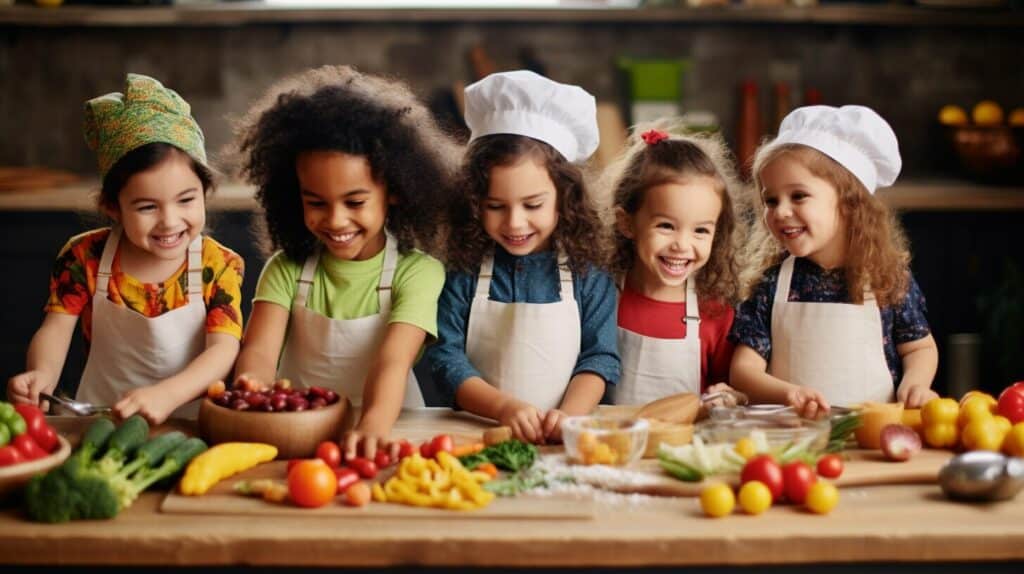
“Cooking is an excellent way to make introducing new foods enjoyable and engaging.”
If your child is a picky eater, introducing new foods can be a challenge. But with a little creativity, you can make the process fun and engaging. Here are some tips:
| Tip | Description |
|---|---|
| Make it a game | Try playing a game where your child gets points for trying new foods. Or have a taste test where they have to guess what they’re eating. |
| Get them involved | Let your child help with meal planning and grocery shopping. They’ll be more likely to try new foods if they’ve had a hand in choosing them. |
| Be sneaky | Sometimes, the best way to introduce new foods is to sneak them into familiar dishes. For example, puree vegetables and add them to spaghetti sauce or smoothies. |
| Try new recipes | Find recipes that use ingredients your child likes but also introduce new flavors. Encourage them to help with the cooking process. |
Remember, introducing new foods takes time and patience. Don’t force your child to try something they’re not ready for. Keep offering new foods, and eventually, their palate will expand.
Image source: 
Cooking is not just about creating delicious meals; it’s also an opportunity for your kids to develop a range of valuable skills. By involving them in the kitchen, you can teach them practical lessons that will stay with them for life. Here are some ways cooking can enhance your child’s learning:
| Skill | Lesson |
|---|---|
| Math | Measuring ingredients, calculating cooking times, and splitting recipes |
| Science | Understanding chemical reactions, the effects of heat, and the properties of different ingredients |
| Cultural Understanding | Exploring different cuisines and the origins of specific dishes |
Cooking is a great way to tap into your child’s curiosity and get them excited about learning. By explaining the scientific or cultural background of a recipe, you can help your child appreciate the complexity of the dish and develop a deeper understanding of the world around them.
To make the most of this learning opportunity, it’s important to match the tasks to your child’s age and ability. Younger children can help with simple tasks like stirring or measuring ingredients, while older children can take on more complex tasks like chopping vegetables or following a recipe independently.
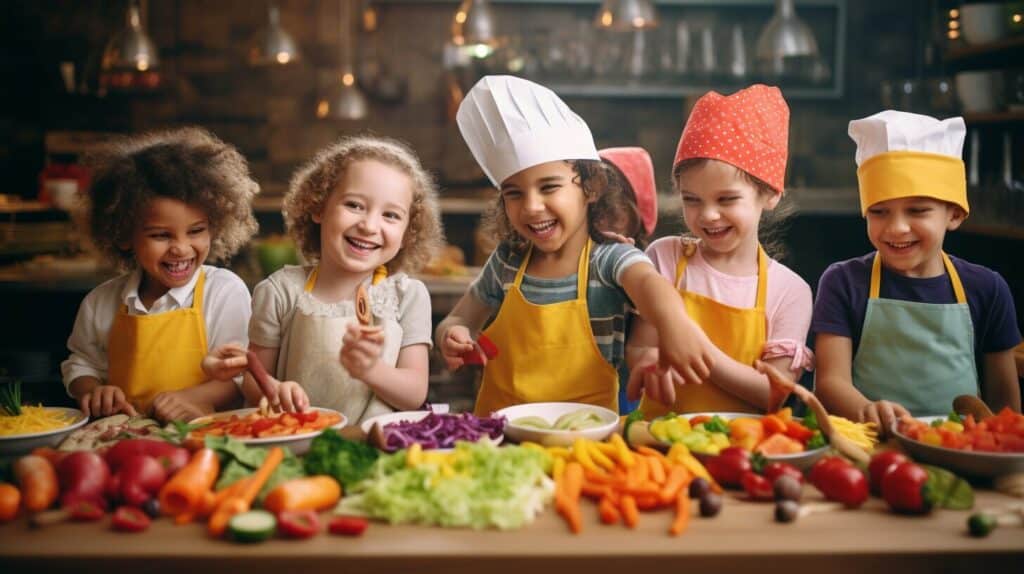
As your child grows more confident in the kitchen, you can gradually increase their level of responsibility and encourage them to take the lead in preparing meals. Not only will this help them develop their culinary skills, but it will also give them a sense of pride and accomplishment.
By using cooking as a learning experience, you can introduce your child to a world of possibilities and help them grow into thoughtful, curious, and confident individuals.
Cooking can be a great confidence booster for kids. When children successfully cook a meal or dish, they feel a sense of pride and accomplishment. Encouraging your kids to cook with you can help build their confidence and self-esteem.
One way to encourage confidence building through cooking is to have family cooking nights. This allows everyone to participate and feel involved in the meal preparation process. Letting your child take the lead in the kitchen can also help them feel more confident in their skills. Start with simple recipes and gradually increase the difficulty level as they become more comfortable in the kitchen.
When cooking with your child, give them age-appropriate tasks, such as measuring ingredients or stirring the pot. As they get more experienced, you can give them more responsibility in the kitchen. This will help them feel more independent and responsible, which also contributes to building confidence.

Another way to build confidence is to let your child experiment and get creative with their cooking. Encourage them to come up with their own ideas and try out new things in the kitchen. Even if a particular dish doesn’t turn out perfectly, remind them that mistakes can be a learning opportunity and that practice makes perfect.
Cooking together can be a bonding experience and provide an opportunity for parents and children to spend quality time together. Taking the time to teach your child cooking skills and encouraging their culinary endeavors can help them feel confident and capable in the kitchen, and in turn, boost their self-esteem.
As a parent, you want to ensure your children are eating nutritious meals that will keep them healthy and happy. Cooking with your kids gives you the opportunity to introduce them to a wider variety of foods and help establish healthy eating habits for life.
Using fresh ingredients is a great place to start. Encourage your kids to explore the produce section with you and choose colorful fruits and vegetables to include in your meals. You can also involve them in meal planning and grocery shopping to help them understand the importance of balanced meals.
Here’s a nutritious recipe that you and your kids can enjoy: Quinoa Salad Bowl.
| Ingredients | Directions |
|---|---|
|
|
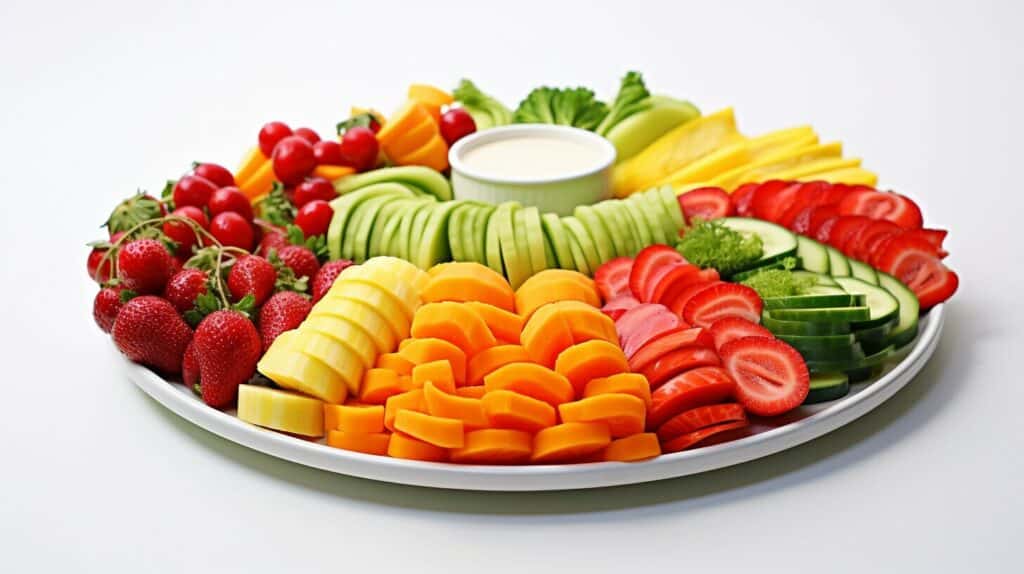
Remember, cooking with your kids is not only about making healthy meals, but also about involving them in the process and teaching them valuable skills that will benefit them in many areas of their lives.
One of the most significant benefits of cooking with children is that it can inspire independence and responsibility. By teaching them basic kitchen safety and proper food handling, you can help your kids become more comfortable and confident in the kitchen. As they gain more experience, you can gradually increase their level of responsibility and encourage them to take on more advanced tasks. This can help them develop a sense of accomplishment and pride in their cooking skills.
To start, you can involve your children in simple tasks such as washing fruits and vegetables, measuring ingredients, or stirring the pot. As they become more comfortable, they can take on more complex tasks such as chopping vegetables, grilling meats, or even cooking a full meal on their own.
It’s essential to establish ground rules and safety guidelines when cooking with children. Make sure they know how to use utensils safely, such as knives and kitchen scissors. Also, teach them how to handle hot pots and pans and never leave them unattended in the kitchen.

As they gain more experience and confidence, you can let them take more significant roles in family meal planning and preparation. Encourage them to come up with their own recipe ideas, and let them take the lead in the kitchen. This can help boost their creativity and sense of ownership over the food they’re cooking.
By involving children in the cooking process, you can teach them valuable life skills such as responsibility and accountability. Cooking requires careful planning, attention to detail, and patience, all of which are valuable traits that can benefit your child in the long run. Additionally, allowing children to take on more responsibility in the kitchen can help them feel empowered and confident in their abilities.
When you involve your children in cooking, it can be a valuable learning experience in more ways than one. Not only can they learn how to prepare meals, but they can also develop various skills that will benefit them in other areas of life.
For example, cooking can help children improve their math skills by measuring ingredients and calculating cooking times. It can also enhance their scientific understanding by teaching them about chemical reactions in food and the impact of heat on different ingredients.
Additionally, involving children in cooking can teach them about cultural diversity and different cuisines. They can learn about the history and traditions behind certain dishes and ingredients, which can encourage respect and appreciation for different cultures.
| Age-Appropriate Tasks | Related Skills |
|---|---|
| Washing and peeling vegetables | Fine motor skills and hand-eye coordination |
| Stirring and mixing ingredients | Hand-eye coordination and spatial awareness |
| Reading and following recipes | Reading comprehension and attention to detail |
| Measuring and weighing ingredients | Math skills and problem-solving |
By providing your child with age-appropriate tasks and activities, you can help them build confidence and skills in the kitchen. Start with simple tasks and gradually increase their level of responsibility as they become more comfortable.

“Cooking with kids is not just about making food. It’s about teaching them responsibility, accountability, and how to work as a team. It’s a life skill that they will carry with them forever.” – Chef Emeril Lagasse
As you work towards expanding your child’s palate and encouraging their culinary skills, you may encounter challenges and rejections along the way.
Be patient. It may take several tries before your child becomes comfortable with a new food. Keep offering it in different preparations and combinations.
Set realistic expectations. Don’t expect your child to love everything they try. Focus on introducing a variety of foods and flavors, and celebrate small victories.
Gradually introduce new foods. Start with small portions or incorporate new ingredients into familiar dishes. Encourage your child to try at least one bite, but don’t force them to eat it if they don’t like it.
Get creative. Find fun and engaging ways to introduce new foods, such as using colorful vegetables to create a rainbow plate or making food art.
Remember, the goal is not to force your child to eat everything, but rather to help them develop a more adventurous and open-minded attitude towards food.
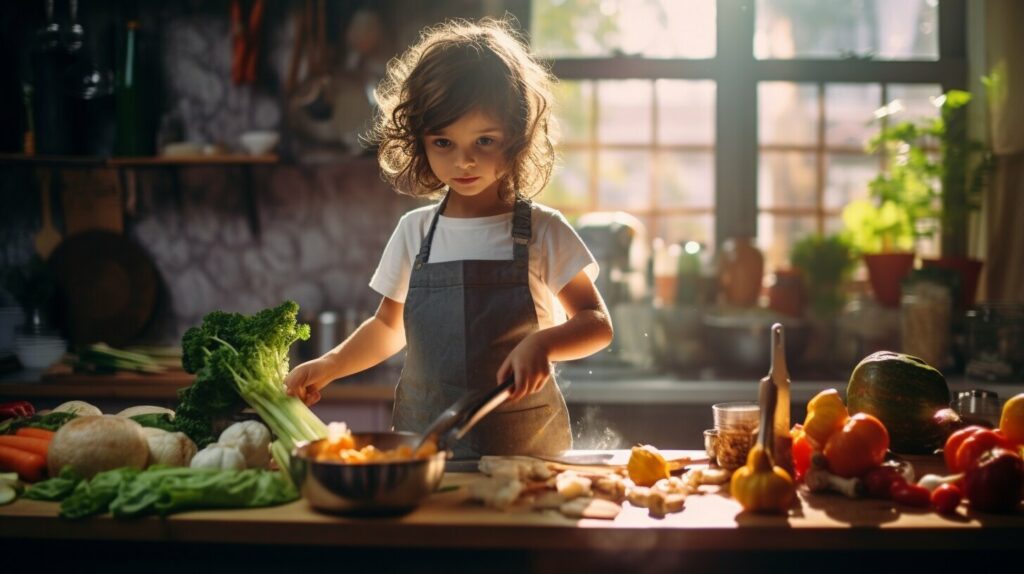
“The kitchen is a laboratory, and everything that happens there has to do with science. It’s biology, chemistry, physics. Yes, there’s history. Yes, there’s artistry. Yes, to all of that. But what happened there, what actually happens to the food is all science.” – Alton Brown
Cooking with kids is not only a fun activity but can also spark a lifelong passion for culinary arts. By involving your children in the kitchen, you can expose them to different flavors, techniques, and cuisines, expanding their palates and fostering an appreciation for food.
Who knows, your child might even grow up to become a famous chef like Flynn McGarry, who started cooking at age 10 and now has his own restaurant in New York City. Or they may choose a different career path, but the skills they learn while cooking with you will stay with them for life.
As your children get older and more experienced in the kitchen, they can take on increasing levels of responsibility, such as planning meals and grocery shopping. This independence and empowerment can help them build confidence and a sense of responsibility, which will serve them well in all areas of their lives.
Whether your child becomes a professional chef or simply enjoys cooking as a hobby, the benefits of cooking with children are endless. So, grab your aprons and start creating memories in the kitchen!
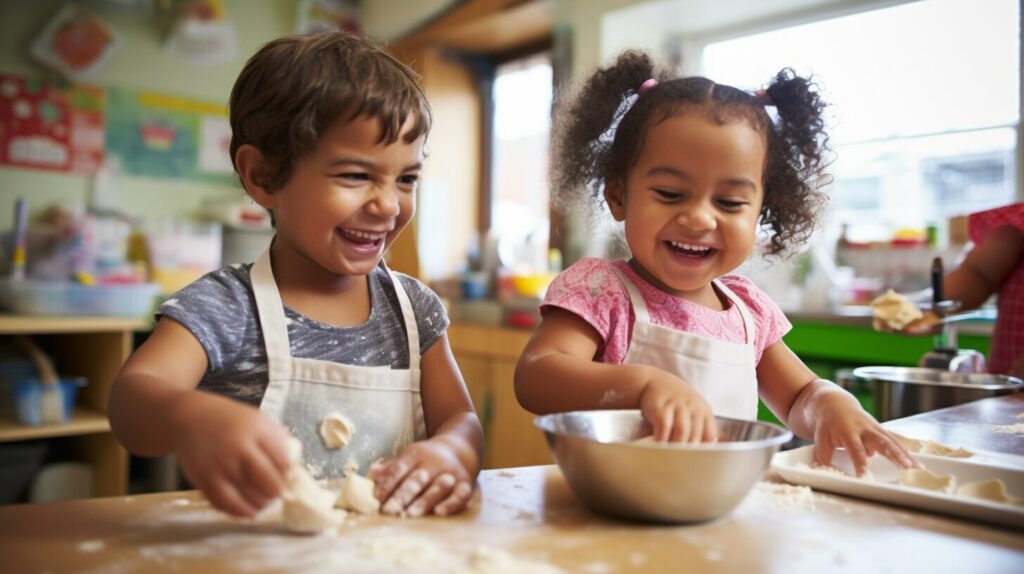
“Cooking is all about people. Food is maybe the only universal thing that really has the power to bring everyone together. No matter what culture, everywhere around the world, people get together to eat.” – Guy Fieri
Congratulations, you’ve reached the end of this article! By now, you should understand how cooking can benefit your child’s development and eating habits. Whether you have picky eaters at home or just want to encourage your kids to explore new foods, cooking is a fun and effective way to expand their palates.
Remember, cooking with kids isn’t just about making meals – it’s about teaching them important life skills, building confidence, and nurturing their love for food. By involving your children in the cooking process, you can create healthy habits, inspire independence and responsibility, and foster a lifelong passion for culinary arts.
So why not start today? Gather your ingredients, put on your aprons, and get ready to unleash your inner Junior Chef! Who knows – you might just discover a new family favorite and create lasting memories in the kitchen.

